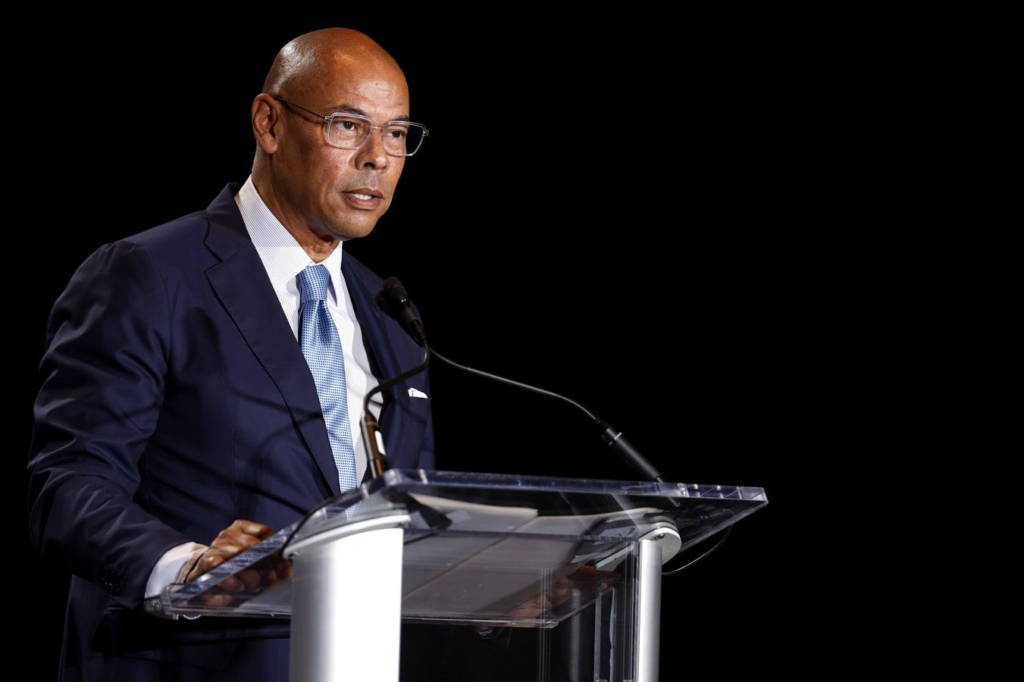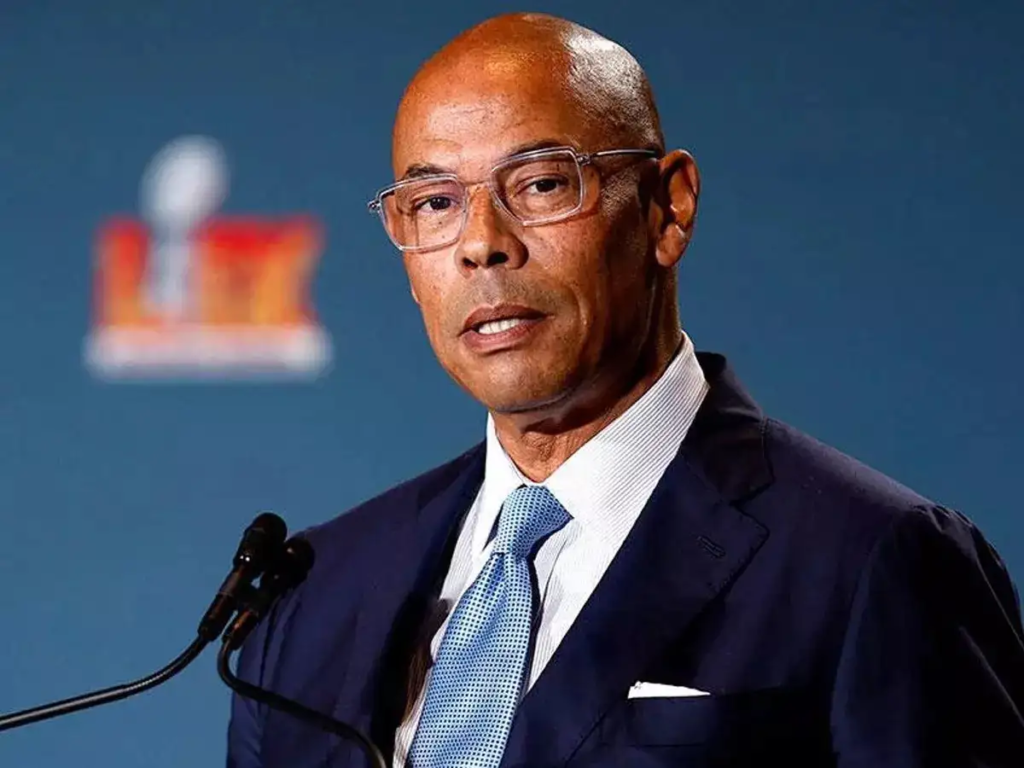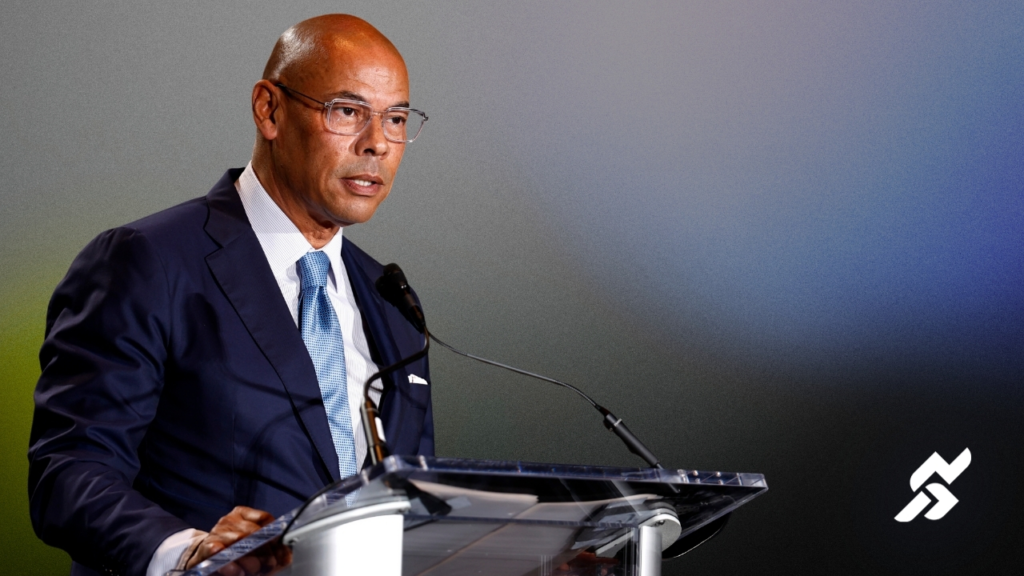In a surprising development that has sent waves through the football community, Lloyd Howell has resigned from his role as executive director of the NFL Players Association (NFLPA). The news comes after just over a year of his leadership, marking a sudden and unexpected change at the top of one of the most powerful labor unions in professional sports.
Howell, who was appointed to the position in 2023, succeeded longtime NFLPA leader DeMaurice Smith. He brought with him a background in finance and consulting, not traditional football or union management, which made his selection both intriguing and controversial. His resignation opens up major questions about the future of the NFLPA and the challenges players may face without a strong and steady voice representing them.
Here are five key takeaways from Howell’s resignation and what it means for the league, the players, and the future of labor negotiations in professional football.
1. A Leadership Void at a Critical Time
The NFLPA plays a central role in managing the rights, benefits, and working conditions of players in the National Football League. With Howell’s abrupt exit, the union faces a sudden leadership gap at a time when several key issues are on the horizon, including:

- Ongoing debates around player safety, especially with regard to artificial turf.
- Revenue sharing and new media rights deals that could impact salaries.
- The long-term effects of Thursday night games on player health and performance.
- The early planning for the next Collective Bargaining Agreement (CBA).
Having a steady, experienced hand at the helm is essential in navigating these complex matters. Howell’s resignation forces the NFLPA to act fast in finding an interim or permanent replacement.
2. Howell’s Business Background Was a Mixed Fit
Lloyd Howell had an impressive resume before stepping into the NFLPA executive director role. He served as chief financial officer at Booz Allen Hamilton, one of the leading consulting firms in the United States. He was known for managing big budgets and bringing analytical precision to strategic decision-making.
However, some critics believed that Howell lacked the football-first mindset that previous directors had, which may have made it harder for players to relate to his leadership. His background in corporate consulting was a far cry from the locker room culture many players value in their representatives.
While Howell tried to focus on long-term player benefits and financial stability, his style may have felt too removed or formal for some members of the NFLPA executive committee.

3. Questions Arise About Internal NFLPA Tensions
Although the NFLPA has not given a detailed explanation for Howell’s resignation, multiple reports suggest there may have been internal disagreements about the direction of the union under his leadership.
Some player reps reportedly wanted a more aggressive stance on league policies, particularly around disciplinary actions and collective bargaining preparation. Others expressed concerns about communication, transparency, and Howell’s ability to rally players around key causes.
The friction may have been intensified by Howell’s non-football background and his more business-like approach to leadership. Without strong player buy-in, even the most skilled executive can struggle in such a high-stakes role.
4. What Happens Next for the NFLPA?
With Howell now stepping aside, the NFLPA will likely appoint an interim director while beginning a search for a long-term replacement. The timeline for this transition could be critical, especially with training camps beginning and the NFL season only weeks away.
The next executive director will be expected to:
- Strengthen relationships with player reps and veteran leaders.
- Lead negotiations for player rights and safety improvements.
- Restore unity within the union’s leadership team.
There is already speculation about potential successors. Some insiders suggest the NFLPA may return to a former player or someone with a sports legal background, which may better match the players’ needs and expectations.

5. What This Means for NFL Players and Fans
Lloyd Howell’s resignation is not just a leadership change it signals deeper uncertainty about the union’s direction. For players, it may mean a delay in addressing pressing concerns like offseason programs, healthcare, mental wellness, and long-term retirement benefits.
Fans may not notice immediate effects, but over time, strong or weak union leadership can impact:
- The quality and fairness of the game.
- The level of player satisfaction and performance.
- The frequency of labor disputes or potential lockouts.
In a league where billion-dollar TV deals are made and careers can be over in just a few seasons, the NFLPA’s ability to negotiate and protect players’ interests is essential.
Final Thoughts
Lloyd Howell’s departure from the NFLPA executive director position marks a significant turning point for the players’ union. Whether viewed as a mismatch in leadership style or a necessary change for better alignment with player interests, the decision comes at a time when union stability is needed more than ever.
The NFLPA now faces a critical task: finding a leader who not only understands the business of football but also respects and reflects the voices of those who play the game. With a new season approaching and major negotiations on the horizon, all eyes will be on the next chapter of the NFLPA and the future of the players it represents.
Read more – CPRA and BIPA Enforcement Intensifies Across the U.S.






